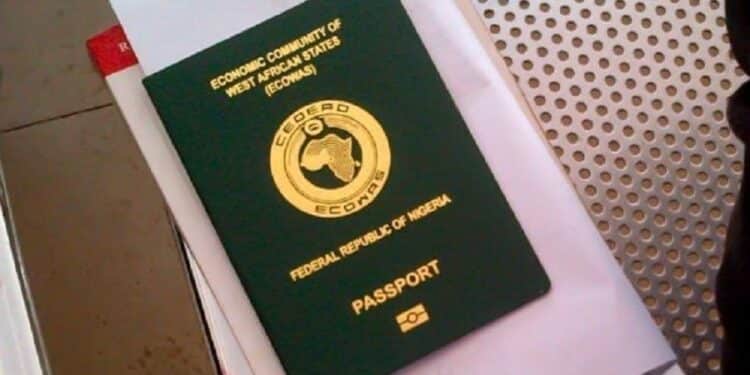The Africa Visa Openness Index measures the extent to which each African country is open to visitors from other African countries. It has released a report listing countries to which Nigerian passport holders can travel without a visa and countries that offer visa-on-arrival.
According to the report, 17 countries that offer Nigerians visa-free entry include Benin, Burkina Faso, Cabo Verde, Cameroon, Chad, Côte d’Ivoire, Ghana, Guinea, Guinea-Bissau, Liberia, Mali, Niger, Senegal, Seychelles, and Sierra Leone.
Benin Republic
The report reveals that 36 countries offer Nigerian passport holders visas on arrival. These include Algeria, Angola, Botswana, Burundi, the Central African Republic, Comoros, Djibouti, the Democratic Republic of the Congo, Egypt, Equatorial Guinea, Eritrea, Eswatini, Ethiopia, Gabon, and Kenya.
Others include Lesotho, Libya, Madagascar, Malawi, Mauritania, Mauritius, Morocco, Mozambique, Namibia, Republic of the Congo, Rwanda, São Tomé and Príncipe, Somalia, South Africa, South Sudan, Sudan, Tanzania, Tunisia, Uganda, Zambia, and Zimbabwe.
Morocco
According to the report, Benin, the Gambia, Rwanda, and Seychelles offer visa-free access to all Africans. In 28 per cent of country-to-country travel scenarios within Africa, African citizens do not need a visa to cross the border, a marked improvement over the 20 per cent in 2016.
In 2024, 26 African countries—approximately 44 per cent of the continent—offered an e-visa for Africans, up from nine countries—17 per cent of the continent—in 2016.
Thirty-nine countries have improved their score since 2016. Of the 10 that have progressed the most, six are in West Africa, two are in East Africa, and two are in Southern Africa
Nine of the top 20 performers are from low‑income countries; three are landlocked. Another nine top 20 performers are from lower‑middle‑income countries. Lower‑income countries continue to make progress.
From 2016 to 2024, 39 countries scored higher than in 2016, reflecting overall progress towards easing travel between African countries.
Seychelles
Over the same period, five countries have had the most improved scores on the AVOI: Benin (moved rank from 31 to 1), Ethiopia (from 46 to 19), Sierra Leone (from 32 to 13), Nigeria (from 25 to 6), and Gambia (from 18 to 1). Some are now joint top-ranked countries on the AVOI, a commendable achievement given their progress on embracing visa openness in recent years.
The most striking observation about changes in visa openness since 2016 is that there has been a significant increase in the number of intra‑Africa travel scenarios where African citizens are no longer subject to a visa requirement concerning travel, from 20 per cent in 2016 to 28 per cent in 2024, translating to a 40 per cent increase in visa‑free travel over the past nine years.
Sierra Leone
The first indicator (see graphic below) illustrates these positive developments. While the rounded percentage remains unchanged, closer scrutiny of the data reveals that the number of visa-free travel scenarios between African countries has increased to 803 (nine were added over the past year), representing the highest number of visa-free travel possibilities to date.
The second indicator relates to the situation where a visa can be obtained on arrival. Although nominally unchanged since 2016, with a slight decrease in 2023, this metric is nevertheless representative of progress made in easing travel.
Regarding scoring, two opposing yet often complementary developments underlie this metric. On the one hand, countries ease travel by transitioning from a visa-required (prior to travel) policy to a visa-on-arrival policy, which enhances the travel experience and contributes to a higher percentage score in this indicator. On the other hand, countries relax their visa policies by transitioning from a visa-on-arrival to a visa-free policy, thereby lowering the applicable percentage.
Cote d’Ivoire
The third indicator measures travel scenarios where the visa process must be completed prior to travel. A lower percentage of travel scenarios to which such policies apply (55 per cent in 2016, down to 47 per cent in 2024) is a positive development.
While this is a critical improvement overall, there has also been a slight increase in instances over the past year where a visa-required policy is being applied.
The overall percentage remains considerably high, notwithstanding the progress made, and leaves much room for further evolution. While 26 African countries—nearly half of the continent—offer an e-visa that can be obtained before travel, the scoring does not directly address this issue, as travel still requires a visa.










